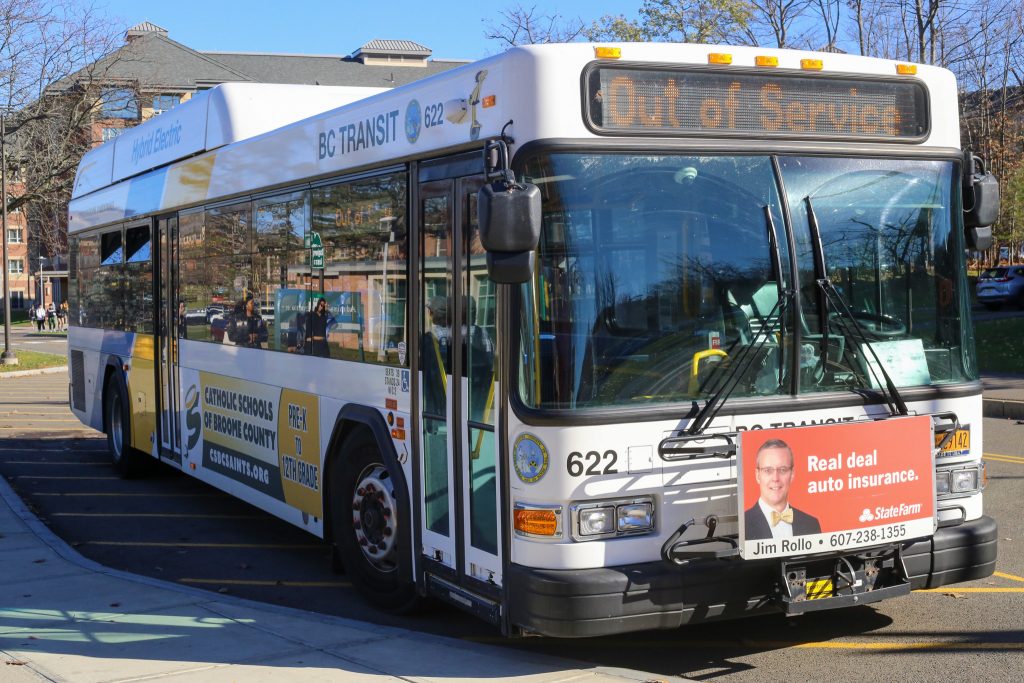Broome County (BC) Transit is updating its fare system with new technology.
In the wake of the COVID-19 pandemic, BC Transit has modernized payment options on their buses as a part of a push for higher operational efficiency. Students have been allowed to board BC Transit buses for free for over 20 years, and while this will not change, new features are going to be applied to the buses, including updated BU ID scanners and advanced payment processors, according to Gregory Kilmer, the Broome County Commissioner.
Currently, BC Transit services approximately 1.6 million people each year in Binghamton and the surrounding areas, with major hubs located at the Binghamton University Union and BC Junction downtown, according to Kilmer. Over 40 percent of those riders are associated with BU.
Kilmer, who helped to oversee the updating process, explained that the purpose of the upgraded ID scanners is to replace the “aging and basic fare system” with a “future-proof” system that can take multiple forms of payment.
“The process took about 1.5 years in the planning, funding, bidding and procurement,” Kilmer wrote in an email. “The implementation phase, which includes installation in 70 buses, a ticket vending machine, a mobile app and a picture ID system, took about [one] year. The new system accepts cash, traditional magnetic strip bus passes, ‘tap and go’ proximity cards and reads smartphones using a mobile app. The mobile app has proven to be the most popular method of payment.”
BC Transit worked with BU, as well as SUNY Broome, to update the ID scanners that are used by students that take the buses. The new technology will help to gather more accurate data about ridership, according to Kilmer, and will disallow people from using expired ID’s.
“The system will provide highly accurate metrics allowing us to study ridership trends and overall use of BC Transit by time and location,” Kilmer wrote. “This data allows us to fine-tune our service offerings to meet new and shifting demand. The new fare system will also help reduce fraud since individuals with inactive ID’s will no longer be able to ride for free.”
Hanks Liu, a sophomore majoring in business administration, takes BC Transit a few times per week. Liu questioned the impact the new scanners will have.
“I personally never scan my ID, and the driver doesn’t check,” Liu said. “I prefer the [University Off Campus College Transport (OCCT)] buses, since [BU] students are the only passengers. The BC bus is almost never on time, so I don’t have much confidence toward data collection.”
BU students can also take OCCT buses, but they offer limited service as compared with BC Transit. However, OCCT is exclusively for BU students and staff, and many OCCT drivers are students themselves.
Matthew Huang, a junior majoring in accounting, moved off campus this year and uses BC Transit often. Huang suggested further improvements to the system based on the transit system technology used in New York City.
“I would like to see the time of arrival tracked through Google Maps, similar to how the MTA [in NYC] gives exact times for train arrivals,” Huang said. “Right now, I can see the scheduled arrivals, but with no live tracking this isn’t always helpful.”



